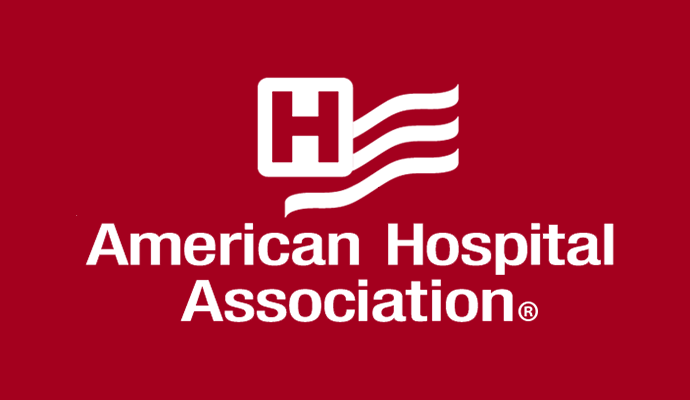AHA: Federal Budget Should Bolster Healthcare Workforce, Public Health
The group is asking Congress to consider the federal budget’s impact on healthcare, including healthcare workforce and public health during the ongoing pandemic.

Source: Xtelligent Healthcare Media/American Hospital Association
- The American Hospital Association (AHA) is asking key lawmakers to consider the potential effort their healthcare funding decisions for fiscal year (FY) 2022 will have on hospitals’ ability to provide care to patients and communities during the ongoing COVID-19 pandemic.
President Joe Biden released his proposed FY 2022 federal budget earlier this month, which included a 23.5 percent boost for the HHS budget over the previous year to bolster readiness for the next public health crisis, advance health equity, and end the opioid crisis, among other priorities.
The budget has been sent to House and Senate Budget Committees for mark-up and approval, expected later this month.
In a letter to leaders of the House Appropriations Subcommittees on Labor, Health and Human Services, Education, and Related Agencies, AHA urged appropriators to give “strong and favorable” funding consideration to the Children’s Hospitals Graduate Medical Education program, health professions education and workforce programs, rural health programs, and the Hospital Preparedness Program, among other priorities.
Hospitals are facing considerable challenges because of the COVID-19 pandemic and other trends, the industry group stated. The challenges cited by AHA included implementing hospital preparedness efforts and addressing issues with personal protective equipment, as well as ongoing challenges related to workforce, behavioral health treatment and many other issues.
READ MORE: Gender, Racial Disparities in COVID-19 Workforce Stress Levels
The funding considerations presented by the group focus largely on bolstering the healthcare workforce and public health programs to address the challenges.
For example, AHA backed funding allocations for several workforce education and development programs, including the Nursing Workforce Development programs under title VIII of the Public Health Service Act, National Health Service Corps, and the Centers of Excellence and the Health Careers Opportunity Programs.
The group also asked for additional funding for Title VII Health Professions Programs, as well as Primary Care Medicine, Pediatric Subspecialty Loan Repayment, and Oral Health Training programs.
“A qualified, engaged, diverse workforce is the core infrastructure of our health care system,” AHA wrote in the letter. “Yet COVID-19 has taken a heavy toll on our health care heroes who have been on the front lines of the pandemic with many suffering from trauma, burnout and increased behavioral health challenges.”
“Additionally, we are increasingly hearing that practitioners are choosing to retire early, given the strain of the past year. Congress should support efforts to ensure an adequate, sustainable health care workforce,” the letter continued.
READ MORE: CMS Unveils More Flexibilities to Maximize Healthcare Workforce
AHA also emphasized disaster and emergency preparedness funding through the Hospital Preparedness Program (HPP) in its bid to subcommittee leaders.
“[F]unding for the HPP has not kept pace with the ever-changing and growing threats faced by hospitals, health care systems and their communities. Furthermore, in recent years, hospitals have received only a fraction of the HPP funds,” AHA wrote.
“As the COVID-19 pandemic made clear, our health care system needs far more assistance during a national crisis. To address these concerns, the AHA urges Congress to provide significantly more funding and, as it did in 2020, to allow HPP funds to be distributed to better reflect the central role that hospitals and health systems play in preparing for and responding to the increasing numbers of disasters and public health emergencies,” the group stated.
AHA called for a substantial increase in HPP federal funding over last year’s allocation and ensure that the majority of the funding is awarded to hospitals and health systems.
Last year, the federal government earmarked $300 million for HPP, but federal funding for the program has decreased significantly compared to years past. Specifically, authorized funding has fallen by 42 percent since the height of the program in the early 2000s despite slight increases over the past four years, AHA reported.
READ MORE: AAMC Report Highlights Healthcare Workforce Challenges
To further support emergency preparedness, the AHA also backed $153 million in funding for the CDC’s e Social Determinants of Health Accelerator Plans, which will help state and local governments develop strategies to address the health and social needs of targeted populations.
The group also supported funding allocations for the Maternal and Child Health Block Grant ($750 million), Healthy Start Program ($128 million), Emergency Medical Services for Children ($22 million), Substance Abuse and Mental Health Services Administration ($6.9 billion), Office of Minority Health ($70 million), and National Institute on Minority Health and Health Disparities ($449 million).
Other priorities for healthcare funding identified by AHA included $330 million or more for rural health programs, such as the Medicare Rural Hospital Flexibility Grant Program, Rural Health Outreach and Network Development, State Offices of Rural Health, Rural Telehealth, Rural Policy Development and other health care programs.
The group also called on subcommittee leaders to allow federal funding to support the creation of a unique patient identifier (UPI).
“For the past 20 years, language has been included in appropriations bills prohibiting HHS from spending any federal funding to adopt a UPI,” AHA wrote. “Removing the prohibition on the use of federal funds to promulgate or adopt a national UPI would provide HHS the ability to explore solutions that accurately identify patients and link them with their correct medical records.”
